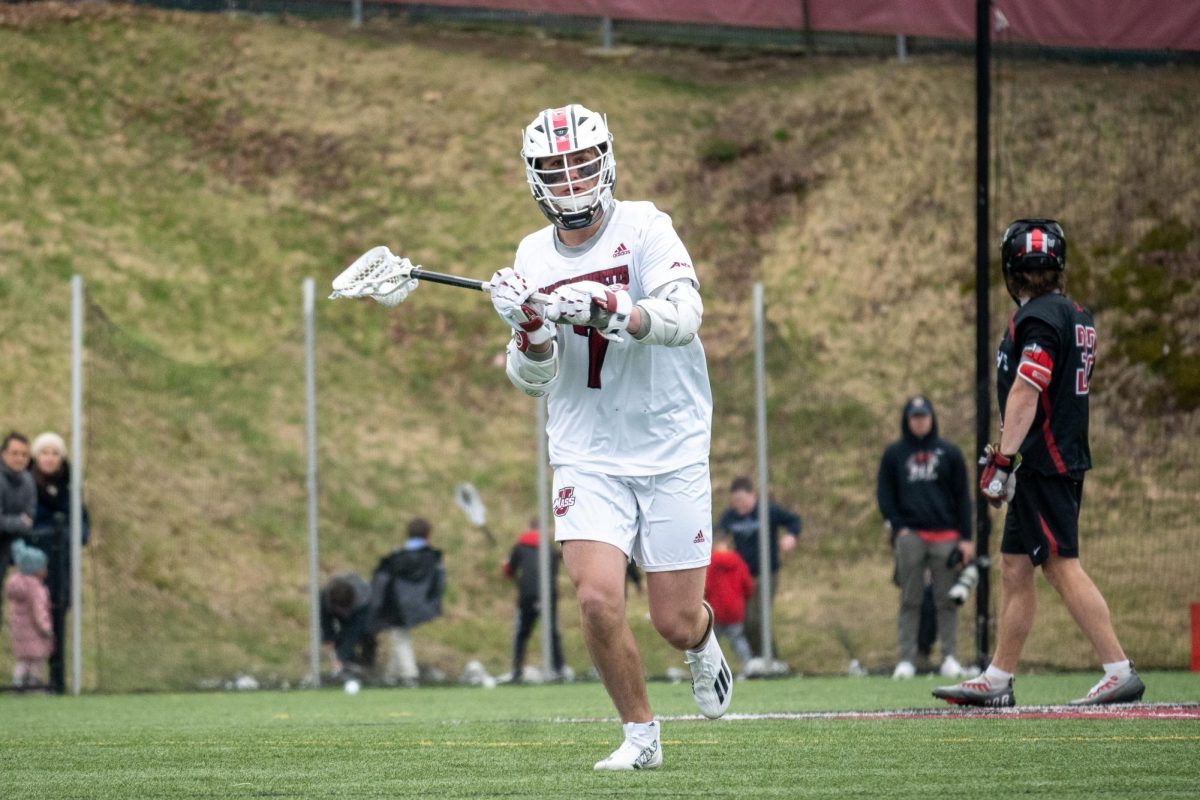Students at the University of Massachusetts had the pleasure of dining on a locally grown dinner Sunday night at the Dining Commons. Some 13,500 students on meal plans have the option to sample fresh fruits and produce, meats and fish that come from surrounding farms within five miles of the University’s four DCs. “We’ve changed our menu to integrate seasonal vegetables from local farmers,” said Ken Toong, Director of Dining and Retail Services at UMass. The national trend of eating only locally grown foods that travel less than 100 miles from home has entered campus, as University chefs use fresh produce, fruits, legumes and nuts while cooking. Much of the stock is tomatoes, spinach, asparagus, berries, eggs and apples, all of which are purchased locally. This means that the made-to-order mode of service that is seen throughout the campus uses products that are fresher and healthier for its students. It also pushes them to become committed to local purchasing. “The fresh quality I constantly received at the DCs pressed me to expand my grocery shopping,” said UMass alumnus Jarrett Dawson. “I now shop as much as I can at local farm stands when it is in season.” The locally grown movement entered the UMass campus around five years ago, when heightened demands arose for more consistent products that were healthier for customers. Toong wanted to give students better quality and a more consistent product. “Eat well, eat smart, small play, big flavor,” said Toong. “I wanted to give students a better quality and more variety.” Toong succeeded in making a lasting impression when dealing with consistency and variety. Students who now live off-campus miss the selection of fresh vegetables they once received on a daily basis. “You never get eight different vegetables to put on a salad when you are only buying for one person,” said off-campus resident Chelsea Cerutti. “I used to be able to choose from carrots, cucumbers, and celery and could pick one of nine dressings to put on my salad. I really miss the variety of the DC.” UMass currently holds the record for being the third largest school in the country in terms of revenue. After falling short of Michigan State and Penn State University, UMass leads the way in terms of buying locally grown products within a five mile radius. In 2007, they purchased 20 percent of their stock from local farmers, up from 15 percent in 2005. “We set aside $450,000 of our budget for local produce this year,” said Toong. “This helped to support several farms in Western Massachusetts. By 2009 we project that 30 percent of our foods come locally.” This was no easy task for the small city-sized population of 25,000 students and the fragmented growing seasons in New England. Because UMass is the largest college campus in Western Massachusetts, farmers are more inclined to integrate their products because of the potential. Amherst College, Smith College and Hampshire College have all made the switch to locally grown products because of UMass. “Because of our size,” said Toong, “it makes it worth while for the farmers.” According to Toong, UMass looks for consistency and efficiency in its supply. They found Joe Czajkowski, the owner of Czajkowski farm in Hadley, Mass. As a local farmer, he acts as a farm broker for UMass. He operates as the mediator between UMass and five farms – Diemand Farm, North Hadley Sugar Shack, Warm Color Apiary, Cook Farm and his own – to ensure there is always enough supply. “He makes it easy for us. The other farmers will drop off shipments to him,” said Toong. “For us this means one stop shopping.” In 2006, UMass Dining received an environmental award from the state for its efforts in sustainability. The University continues to support the local efforts by posting the Community Involved In Sustainable Agriculture stickers above all locally grown products. UMass Dining was also the first large public university to join the Seafood WATCH program in 2006. As part of this program, UMass serves only sustainable seafood in accordance with the guidelines for wild salmon, Pacific cod, American-farmed shrimp and other seafood. Some of the other sustainable practices UMass offers are Fair Trade, shade grown organic coffee in the dining commons and retail outlets. Dining Services also works to compost all wet food waste and pushes to provide education of proper recycling to all of its students. In addition, Toong is hoping to open the first Farmers Market on campus. The market will serve as another resource for students to expand their everyday eating habits. UMass hosts an annual international conference to discuss flavor, sustainability and wellness. The “Tastes of the World” culinary exposition is a favorite among many students, as well as the Restaurant Nights. “My favorite nights are when different chefs come in from different restaurants,” said sophomore Julia Parker. “The food not only tastes great but I know it’s a good quality and fresh.”






